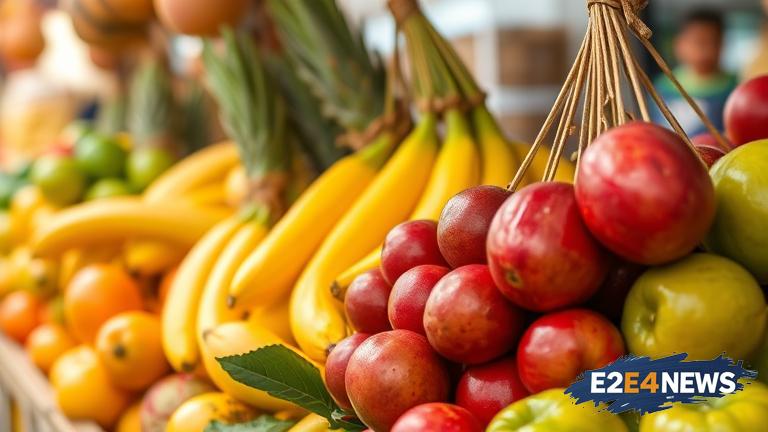The Malaysian Finance Ministry has announced plans to impose a sales tax on imported fruits, effective from 2026. This move is expected to generate an estimated RM38 million in revenue for the government each year. The sales tax, also known as the Sales and Service Tax (SST), will be applied to all imported fruits, including fresh, frozen, and dried varieties. The decision to impose the tax is part of the government’s efforts to increase revenue and reduce the country’s reliance on imported goods. The SST on imported fruits is expected to encourage local farmers to produce more fruits, thereby reducing the country’s dependence on imports. The tax will also help to level the playing field for local fruit producers, who often struggle to compete with cheaper imported alternatives. The Finance Ministry has stated that the SST will be imposed at a rate of 5% to 10% on the value of imported fruits. The exact rate will be determined by the government after consulting with stakeholders, including fruit importers and local farmers. The SST is expected to be implemented in phases, with the first phase targeting high-value fruits such as apples, grapes, and berries. The tax will be collected by the Royal Malaysian Customs Department, which will work closely with fruit importers and local farmers to ensure a smooth implementation. The government has assured that the SST will not significantly impact consumers, as the tax will be absorbed by fruit importers and distributors. However, some industry players have expressed concerns that the tax could lead to higher prices for consumers, particularly for high-end fruits. The Malaysian Fruit Industry Association has welcomed the government’s decision, stating that it will help to promote local fruit production and reduce the country’s reliance on imports. The association has also called on the government to provide support to local farmers, including subsidies and training programs, to help them increase production and competitiveness. The SST on imported fruits is part of the government’s broader efforts to promote local agriculture and reduce the country’s trade deficit. The government has set a target to increase the country’s agricultural production by 10% annually, with a focus on high-value crops such as fruits and vegetables. The SST is also expected to generate revenue for the government, which will be used to fund development projects and social programs. The implementation of the SST on imported fruits is expected to have a positive impact on the local economy, particularly in rural areas where fruit production is a significant contributor to the local economy. The government has assured that the SST will be regularly reviewed and adjusted to ensure that it remains effective in promoting local fruit production and reducing the country’s reliance on imports. The SST on imported fruits is a significant development for the Malaysian fruit industry, and it is expected to have far-reaching implications for local farmers, fruit importers, and consumers. The government’s decision to impose the tax is a clear indication of its commitment to promoting local agriculture and reducing the country’s trade deficit. As the implementation of the SST approaches, industry players and consumers will be closely watching to see how it will impact the market and the economy.
